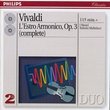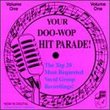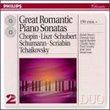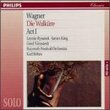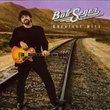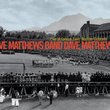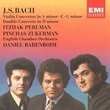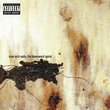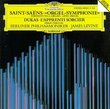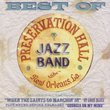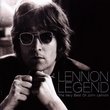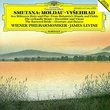| All Artists: Johann Sebastian Bach Title: Bach: The 6 Cello Suites Members Wishing: 0 Total Copies: 0 Label: Philips Release Date: 8/16/1994 Genre: Classical Styles: Chamber Music, Historical Periods, Baroque (c.1600-1750), Instruments, Strings Number of Discs: 2 SwapaCD Credits: 2 UPC: 028944229325 |
Search - Johann Sebastian Bach :: Bach: The 6 Cello Suites
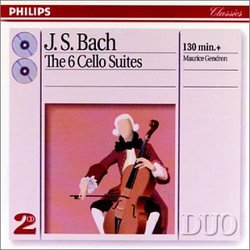 | Johann Sebastian Bach Bach: The 6 Cello Suites Genre: Classical
|
Larger Image |
CD DetailsSimilar CDs
Similarly Requested CDs
|
CD ReviewsPeerless - for 30 years Steven Thomas | New Haven, CT | 08/20/2004 (5 out of 5 stars) "I feel qualified to write a review of Gendron's Bach Suites, having won the International Bach Competition in 1985 in Washington, DC, for the very same pieces. Gendron is the standard by which all others are judged. Structure, voicing, integrity and tone quality have never been matched in such a combination by anyone - ever. Gendron let the music shine through, never letting his personality interfere with Bach's perfection." THE CELLO COMES OF AGE DAVID BRYSON | Glossop Derbyshire England | 03/21/2005 (5 out of 5 stars) "The cello is not my own instrument, so I am in the business of owning one or two good versions of the Bach suites, not the entire selection on offer. After reading a good deal of comment from those who know, or purport to know, the field more thoroughly, I'm forming the impression that whether by luck or by instinct the versions I have are as good as, and maybe better than, any others. The judgment of my own ears suggests that this is likely anyway. What counts as particularly good and recommendable for me is what I shall try to explain. My LP version for many years has been from Fournier - relaxed, urbane and thoughtful. I have seen his accounts characterised as being `romantic', and while he deploys a fair amount of expressive rhythmic inflexion I would not go quite so far in my own description. Bach's lyric gift was as romantic as Brahms's at times, but the cello suites do not show that side of him to any great extent, and no interpreter, however eminent, should try to express what is not really there. What the cello suites do contain is on the one hand pure abstract musical pattern-weaving in their preludes, and for the rest dance-music albeit of great beauty and dignity. It would be an outrage to treat these masterpieces roughly, but on the other hand there is a strong no-nonsense streak in Bach's personality and I take very favourably to the way Gendron suggests this. The very first prelude shows this characteristic right away (to ears attuned to Fournier), and in general Gendron is disposed to take the fast or fastish dance-pieces, (all except the sarabandes), a tad faster and the sarabandes on the other hand a trifle slower. This has an `authentic' ring to me. We do not know a lot about the composer other than his actual music, but there seems to be a fairly credible tradition that he had a predilection for brisk speeds. One way or the other, Gendron's way of going about these suites has a liveliness and vigour that appeals to me strongly. Another factor that counts enormously in this set's favour is the simply brilliant recorded quality - resonant, roomy, rich and as if the player were right there in one's presence. This would have been wasted on indifferent sound from the soloist, but no danger of that from Gendron. His tone is heavenly and it gets the recording it deserves and demands. What a pleasure it is to be able to report a first-class liner-note for once. I refer to the English liner-note. In the finest EU mode there is a note in English, in German, in French and in Italian - but they are all different notes by different authors! The English offering, by Derek Jole, is well-written and informative, saving me the trouble of labouring through any of the others. He takes us through the early history of the cello, and it's worth giving a thumbnail summary of that here. The `serious' low string instrument in Bach's time had been the viola da gamba, but its lack of power and volume was becoming a problem, and various strange contraptions strutted their 15 minutes on the stage before taking a voyage down the waters of Lethe. The cello was already around but mainly as a dull continuo instrument left to duffers and amateurs. The stars were favourable, and Bach made the acquaintance of Christian Linike, was persuaded to write one or two suites, was encouraged by the result in performance, and went on to compose all six, getting more adventurous as he went along. Bach did not of course lose his innate conservatism, and except for the sixth suite the cello is confined to its lower registers, a treatment later replicated in the first cello sonata of Brahms (this point being predictably and comprehensively lost on Mr Peter Latham in his transcendentally unperceptive book on that composer). In #6 we hear a trace of one of the vanished oddities, a 5-stringed `cello piccolo'. The six suites are all to a common 6-movement format, a prelude followed by 5 dance numbers, always in the same sequence. The only variation is in the fifth movement, which is variously minuet, bourree or gavotte. A pleasant touch of imagination has been shown in the production by putting one example of each type on to each disc rather than following the numerical order. Composer and interpreter supply a certain amount more of that commodity in addition. These suites are great art, this is a great rendition in my view, and however strong the rest of the field is I suggest that this version should be a serious contender in anyone's selection." A wonderful set to boot. glengariffe | Boston, MA | 06/14/2002 (5 out of 5 stars) "Having listened to Rostropovich's interpretation of the same piece many times before, I was a bit apprehensive going into Gendron's rendition. Boy did it blow me away. I agree in terms of emotional depth Rostropovich was peerless. But Gendron was certainly no less enjoyable because of the exuberance and his obvious love for Bach's work. He did play some pieces a tad too fast, but the overall flow, the articulateness and vitality of his performance make it an absolute stand-out."
|

 Track Listings (18) - Disc #1
Track Listings (18) - Disc #1